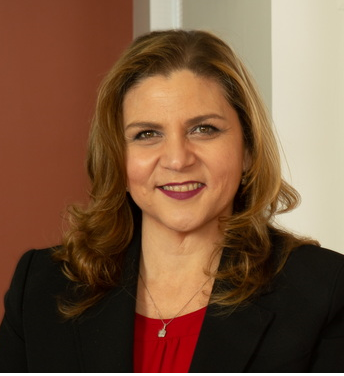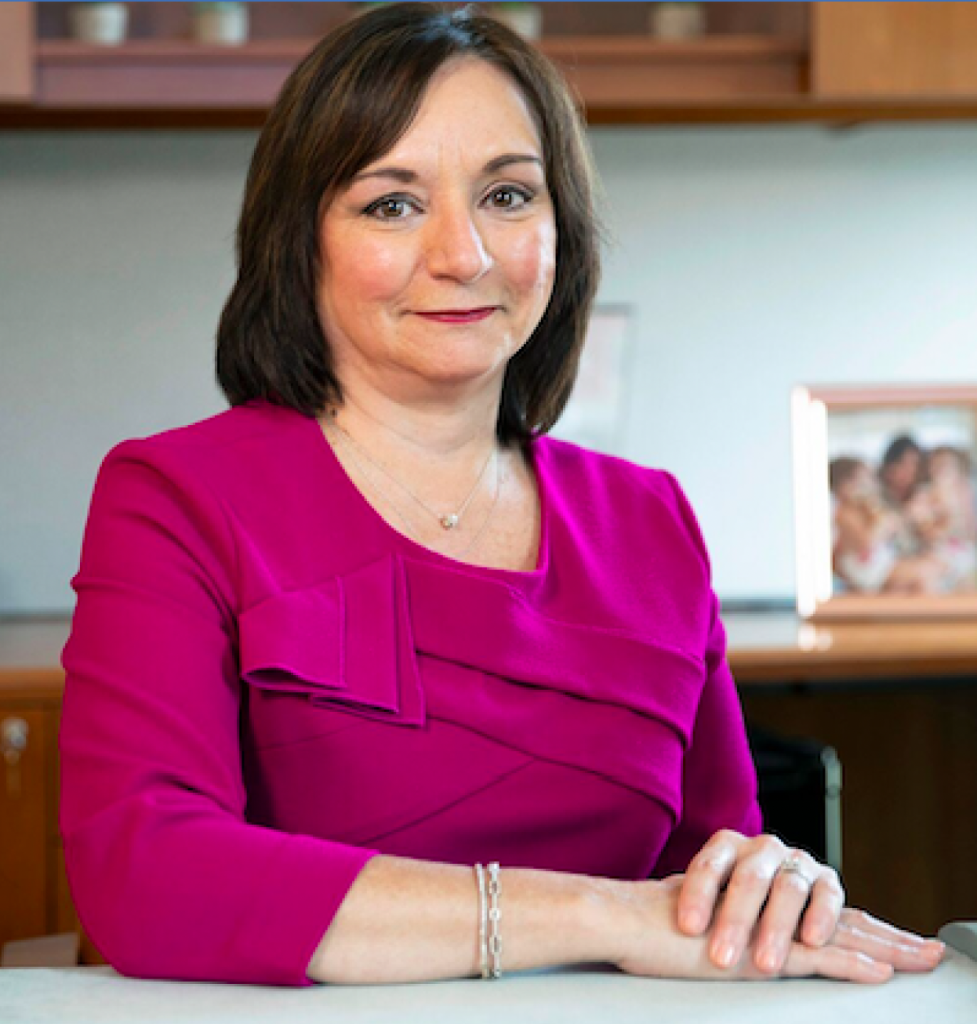grantee spotlight
The Importance and Impact of Latina Leadership at Nonprofits
The Importance and Impact of Latina Leadership at Nonprofits
Nonprofits are best able to serve when their staff and leadership reflect the diversity of their communities. As New York’s Latino population continues to grow, it is more important than ever to elevate leaders representative of these communities – particularly Latina leaders.
To celebrate Hispanic Heritage Month, we spoke with three Latina leaders spearheading nonprofits across New York to discuss the ongoing needs of Hispanic communities, the importance of representation, and the advice they have for young, Latino professionals.
Whether you’re a nonprofit leader or someone just looking to break into the industry, their insight is incredibly valuable– you can read below abridged transcripts of our interviews with Claudia Boyle, Debbie Salas-Lopez, and Adelaida Morin.

Claudia Boyle, CEO of the Hispanic Counseling Center
Mrs. Boyle has spent the last 16 years at the Hispanic Counseling Center (HCC), helping the long island community and working her way up from therapist to Chief Executive Officer. The Hispanic Counseling Center is a bilingual, bicultural nonprofit providing a range of services, including counseling, educational workshops, case management, support groups, after-school tutoring, summer camp, crisis intervention, and prevention programs for at-risk youth. HCC is the only agency in Nassau County licensed by New York State to provide services in an entirely bilingual, bicultural setting.
In what areas do you wish to see progress in resources for the Latin and Hispanic communities you serve?
I think the biggest area we need help with is serving Hispanic youth, and more specifically young adult mental health. We focus a lot on what we can do overall with the community, but Hispanic youth might need something else, and we need more funding for youth mental health.
Can you provide an example of how your presence as a Latino leader within your organization has impacted the community you serve?
Being a Latina and being in the position I am now, I have been able to go up in rank, little by little. In every single position that I’ve had, it’s been an opportunity for me to help the community directly, and for them to see themselves in me. I speak their language, I can relate to them, I understand their struggles – I can be there as a tool, a conduit for help for them.
We figure out what the community needs, and people that look like them are the ones carrying the message, being there to help them and being there to support them– that makes a big difference.
What one word would you use to describe what Hispanic Heritage Month means to you?
I think it is an opportunity for us to show the world how wonderful we are. It is hard to put it in one word, but I think it’s about destigmatizing our culture.
What are you looking forward to the most when it comes to seeing how Hispanic communities continue to evolve?
I want them to see how wonderful and powerful we are, especially Latinas. Latina women are special, and we are everlasting, we are everything to everybody – when they think about Latina I want them to think about that: wow, here she comes, sit down and pay attention.
What advice would you give to young professionals who want to change their community?
I think that you have to know who you are in order for you to understand what you need and get it. To Latina women, be who you are, do not be afraid or ashamed of what you look like, what you wear, who you are or where you come from. Be your best advocate and best cheerleader.

Debbie Salas-Lopez, Senior Vice President of Community and Population Health, Northwell Health
Debbie Salas-Lopez, MD, MPH, oversees Northwell Health’s community and public health strategy, including community health investment, community relations, strategic community partnerships, as well as the smoking cessation, human trafficking and Food as Health programs.
In what areas do you wish to see progress in health and resources for the Latin and Hispanic communities?
COVID taught us a lot about where we have the highest vulnerabilities in our communities because those were the communities that weredisproportionately infected. This was due to the longstanding issues of lack of access to healthcare, lack of transportation, food insecurity – and other social influencers of health. These social influencers of health account for 80% of your health and wellness. Going forward we need to focus on our vulnerable communities and supporting them particularly, our Hispanic communities and our communities of color. Paying attention and partnering with our community and faith-leaders on the social influences of health, including employment, access to care, and food insecurity is the work we must do now to truly improve the overall health and wellness of our communities in the long term.
What one word would you use to describe what Hispanic Heritage month means to you?
This is a month that I reflect about how we are one family of many cultures, how we are optimistic and culturally passionate about who we are and what we stand for. We come from many different countries, and yet we’re one family. We come from many different races, and yet we’re one family. And so it just reminds me how beautiful our Hispanic community is and what a mosaic our culture is. Every day is Hispanic Heritage Month to me– but the month we celebrate reminds us to get together and talk about what we love about our culture.
What are you looking forward to most in seeing how Hispanic heritage continues to evolve?
We’re the fastest growing community in the country. Latinos in the US are the fifth largest economy in the world,. I’d like to see us come together, and work together, to achieve the things that we mutually agree are important to us.
I’m in healthcare, I’m an internal medicine physician. Many in our Hispanic community want to talk to a physician that speaks their language – even when they speak English– because they understand healthcare better in the Spanish language. I’d like to see us get there, where every Hispanic community member has access to a culturally competent, language-concordant physician.
Research in health has shown that when you have a language-concordant and culturally-concordant physician or provider, you have better clinical outcomes. I’d like us to come to a point where that’s not a nice to have, it’s a must have – it’s a given.
Can you provide an example of how your presence as a Latina leader within the organization you serve impacts your community?
When I came to Northwell, I learned about all the wonderful things that had been done by the Northwell Health system. One of the things I looked at was the business employee resource groups (BERG) – we have a Latinx BERG group with over 600 Northwell colleagues. I started working closely with them, looking at ways we could engage our own employees who are Latinos, and also how we could extend ourselves into the Hispanic community more. In the last four years, we’ve been doing that. Working with Latino community-based organizations, Latino faith leaders, and organizing Hispanic physiciansso that we can work together on behalf of our community.
What advice would you give young Latino professionals looking to affect change in their community?
The first thing I would say is always pay it forward – who are you mentoring? Are you extending yourself into the Hispanic community to support those that need it? It makes you happier, when you are helping some else.
Stay curious, continually learn. And stay optimistic – if you stay true to your values, and you do things with integrity, we can change the world.

Adelaida Morin, Senior Program Director, Ariva
Adelaida has worked over a decade on the development of financial inclusion programs for immigrant communities, women entrepreneurs, affordable housing seekers, and other vulnerable populations. Ariva provides free financial counseling as well as free tax preparation services in NYC, at locations in Manhattan, Brooklyn, Queens, and the Bronx, where they have been headquartered since 2003.
Can you provide an example of how your presence as a Latino leader within your organization has impacted the community you serve?
I understand that we have experiences that have not been as beneficial and that have not helped us trust institutions and systems. If we want to work with immigrant communities, we need to understand what has happened in the past and in other countries, and how we can help them understand systems here and how things work differently – like the importance of credit to get a cell phone or rent an apartment. Really understanding how we are able to create that connection between what we want to do in our life and how we connect them to the financial system in the United States.
In what areas do you wish to see progress in health and resources for the Latin and Hispanic communities?
Our mission is for financial inclusion and economic justice. All of these areas are really interconnected. Your health is affected by your finances, and your finances are affected by your health. We want to see an inclusive economy; to look into what people need and help them gain access to those resources.
In one word, can you describe what Hispanic Heritage Month means to you?
I think it means connections, but also looking at the future.
What are you looking forward to most in seeing how Hispanic heritage continues to evolve?
I’m looking forward to seeing the new leaders, to seeing the Hispanic community being the decision makers, business owners, homeowners, and seeing all the growth our community can do. And we wouldn’t be able to do this without the fight by the people who came before us.
What advice would you give to young professionals looking to change their community? I think we can start individually, making sure we understand systems: the financial system, resources, educational opportunities. And start very early, with kids in school, then move into the family unit to build strong families and communities and create ways for us to work together as a community for opportunities in growth and impact.
